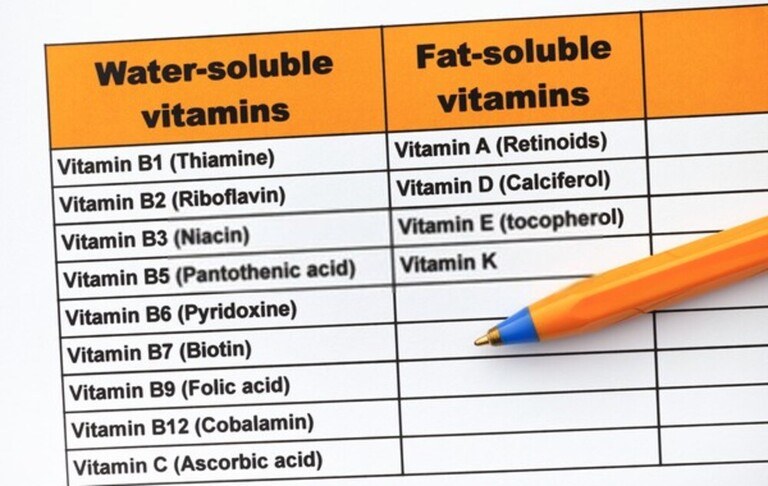Did you know that the way that you cook vegetables can boost or kill the nutrients from them? There’s nothing worse than spending all that extra money and time on getting good veggies for yourself only to lose it in your cooking process.
In this post, I am going to share with you how to cook vegetables without losing vitamins.
Which Vitamins Are Prone To Get Lost While Cooking? Why?
Vitamins are classified as either of two groups:
- Water-soluble vitamins, such as vitamin C and members of the vitamin B complex – which means they are dissolved in water
- Fat-soluble vitamins, composed of vitamin K, E, D, and A – which means they are dissolved in fats or lipids.

According to a study of the Journal of the Science of Food and Agriculture, water-soluble vitamins (and antioxidants) suffer the most during the cooking process.
Another group of vitamins actually don’t care much about heat or water.
The BEST Ways To Cook Vegetables Without Losing Vitamins
Steaming

Steaming is arguably the best cooking method for vegetables without losing vitamins, especially vitamin C.
It also doesn’t require any kind of fat to cook vegetables, which is a real plus for people on a diet or who want to lose weight.
However, to help your body absorb fat-soluble vitamins in veggies more easily, I recommend drizzling a bit of healthy fat (like coconut or olive oil) to your steamed foods before serving. The taste is also amazing.
Stews And Soups

These two dishes use low and slow cooking methods – which is considered a good way to cook vegetables as they are exposed to low heat.
I don’t deny that in the water environment, some nutrients still leach into the broth but that only matters if you do not use it. In fact, slow-cooking dishes like stews and soups make great use of broth.

Golden tips:
Throw veggies into your slow-cooker for the last hour to avoid overcooking them.
To assure that all the vitamins and nutrients are retained during the cooking process, remember to keep the lid of your pot tightly closed.

Add some olive oil or other sorts of healthy fat to the dish to enhance the fat-soluble vitamin absorption of your body.

Three WORST Ways To Cook Vegetables
I think, at this point, the original question has been answered satisfactorily. But if you are also curious about what cooking methods make vegetables most susceptible to losing vitamins, let's find out more!
Boiling

This popular cooking method is like a two-edged sword if applied to vegetables.
Boiling can remove many harmful substances in veggies, such as Goitrogens - which is a thyroid disruptor.
Besides, with those veggies that contain high fat-soluble vitamins – such as carrots with rich content of vitamin A, boiling helps retain the nutrient value of the food rather than drying or frying.
But when compared between the pros and cons of boiling vegetables, I see more bullet points on the cons, partly because of the fact that water-soluble vitamins account for 20% to 66% of vegetables, which is not a small number.
Meanwhile, many other cooking methods do better in keeping both fat-soluble and water-soluble vitamins. So, why not?
Microwaving

According to the Journal of the Science of Food and Agriculture, boiling broccoli washes away 2/3 of its nutrients, which sounds pretty bad until you compare it to microwaving - which loses up to 97% of its flavonoids.
The reason is this cooking method exposes vegetables to high heat for short periods of time. This causes water-soluble vitamins to break down.
But the biggest reason for not microwaving vegetables is the risk that toxins, like BPA, can leach from the microwave container into your food. Learn more about the health risks of BPA here.
Not saying that cooking vegetables with a microwave leaves hot and cold spots on the food, which is not enjoyable to serve.
Roasting

Since roasting exposes food over dry heat and neither uses oil or water during the cooking process, many lot-fat fanatics laud it as the best way to cook vegetables.
But roasting, at the same time, is done at a high temperature for a good amount of time, which causes water-soluble vitamins and many nutrients to break down.
How About Frying?

With this cooking method, I would say 50:50.
It is done over high heat and requires cooking oil during the process.
But according to the Journal of the Science of Food and Agriculture, frying at high heat but for a short period of time won’t lose as many nutrients as roasting or microwaving.
Another big issue with frying is the cooking oil that you choose to fry with. It is fine to use extra virgin olive oil or coconut oil as they are stable at high heat up to 400F. But hydrogenated or processed oil is destroyed by high heat, which will cause inflammation in your system.
Conclusion
I really hope that this post helped you figure out how to cook vegetables without losing vitamins to get a healthier diet. For more informative articles about cooking and diet, please follow my blog. Thanks for reading!













